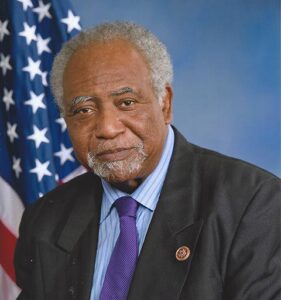Bipartisan Group of 88 Lawmakers Push for Continued Funding for Reentry and Recidivism Programs
A bipartisan group of 88 lawmakers, led by Representatives Carol Miller (R-WV) and Danny Davis (D-IL), wrote a letter calling for continued funding for the Second Chance Act in the Fiscal Year 2026 Commerce, Justice, Science, and Related Agencies appropriations bill. Second Chance Act grant programs provide vital reentry services, including housing assistance, career training and job placement, and substance use disorder and mental health treatment.
Since the Second Chance Act was passed by Congress with bipartisan support and signed into law by President George W. Bush in April 2008, Second Chance Act programs have enhanced public safety and reduced recidivism nationwide by 23 percent. The Act was last reauthorized by President Trump in 2018.

Congresswoman Miller
“The Second Chance Reauthorization Act is an important component of my efforts to reduce recidivism rates and increase public safety” said Congresswoman Miller. “When we invest in our communities and put in place strong reentry services and supports for people released from prisons and jails, we build stronger and safer communities. The bill’s strengthened provisions around transitional housing services and substance abuse treatment will be instrumental in helping people in West Virginia and across the nation get back on the right path as they reenter their communities.”
Second Chance Act programs ensure that the tax dollars spent on corrections no longer result in a revolving door in and out of prison and jail. Each year, more than 450,000 people return to their communities from prison, and an additional 5.6 million people enter and exit local jails. Second Chance Act programs have helped more than 442,000 people in 49 states and the District of Columbia reintegrate into the community and live safe and healthy lives by participating in reentry services or parole and probation programs.

Congressman Davis
“Second Chance reentry programs and services have reached hundreds of thousands of individuals and families across the country, creating healthier families and safer communities,” said Congressman Davis. “Continuing to invest in these evidence-based interventions is a commonsense approach to strengthen individuals, rebuild families, and grow our economy.”
When returning to their communities from criminal justice settings, people with behavioral health needs face barriers in accessing…
Read MoreNew Hampshire Department of Corrections Commissioner Helen Hanks presents at the Medicaid and Corrections Policy Academy in-person meeting.
Read MoreThe Council of State Governments (CSG) Justice Center has launched the Collaborating for Youth and Public Safety Initiative…
Read More Assigned to the Cloud Crew: The National Incarceration Association’s Hybrid Case Management for People with Behavioral Health Needs
Assigned to the Cloud Crew: The National Incarceration Association’s Hybrid Case Management for People with Behavioral Health Needs
When returning to their communities from criminal justice settings, people with behavioral…
Read More Meet the Medicaid and Corrections Policy Academy Mentor States
Meet the Medicaid and Corrections Policy Academy Mentor States
New Hampshire Department of Corrections Commissioner Helen Hanks presents at the Medicaid…
Read More Six States Commit to Improving Statewide Strategies to Address Youth Crime, Violence and Behavioral Health
Six States Commit to Improving Statewide Strategies to Address Youth Crime, Violence and Behavioral Health
The Council of State Governments (CSG) Justice Center has launched the Collaborating…
Read More









